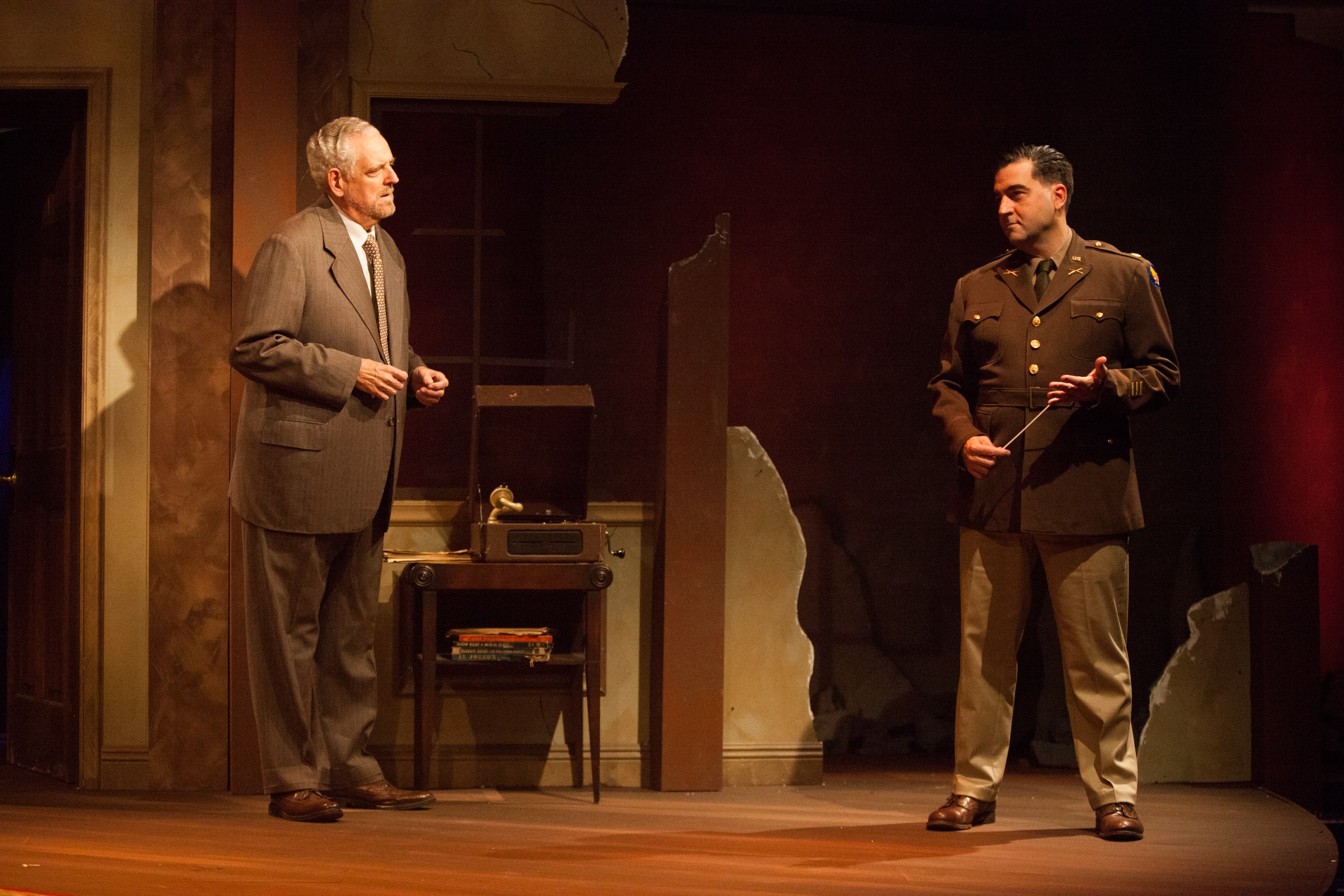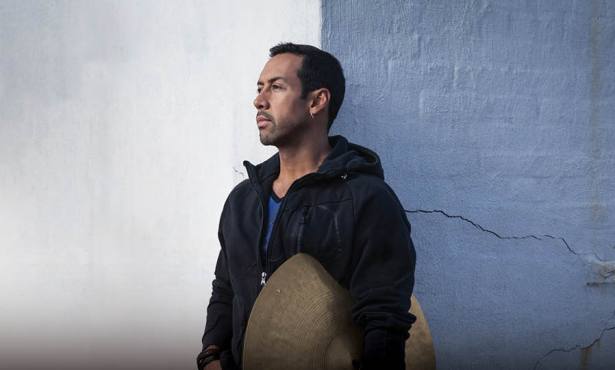‘Taking Sides’’s Dorm-Room Debate
Solid Performances Don’t Elevate Prosaic Play

Can art be separated from politics? The question, which Ronald Harwood raises in his 1995 drama Taking Sides, is certainly timely. In recent weeks, conductor Gustavo Dudamel belatedly spoke out against the autocratic government of his native Venezuela, and Donald Trump excused himself from the Kennedy Center Honors after recipients threatened to boycott the awards. In 1945, the issue swirled around Wilhelm Furtwängler, the greatest orchestral conductor of his generation. When Hitler came to power, he chose to stay in his native Germany. Was that a self-serving, cowardly decision, or a high-minded, courageous one?
The question was not strictly philosophical: Furtwängler (Peter Van Norden) needed permission from the Allies to resume his career after the war. Harwood offers a fictionalized version of his interrogation by an American officer, Major Arnold (Patrick Vest), an angry, uncultured cynic. He views the maestro as a weak man who collaborated with a barbarous regime. Furtwängler defends himself defiantly, noting that he saved the lives of many Jews — and kept the light of culture alive during a very dark period.
It’s a promising premise, but Harwood’s play is more of a dorm-room debate than a work of drama; it’s static, talky, and unimaginative. Arnold is portrayed as such a boor that the deck is stacked against his point of view. For the Rubicon Theatre’s current production, director Stephanie Coltrin-Beyries gets solid performances from a strong cast — it’s always a pleasure to see Van Norden — but for all its talk of artistic transcendence, the play is disappointingly prosaic.



